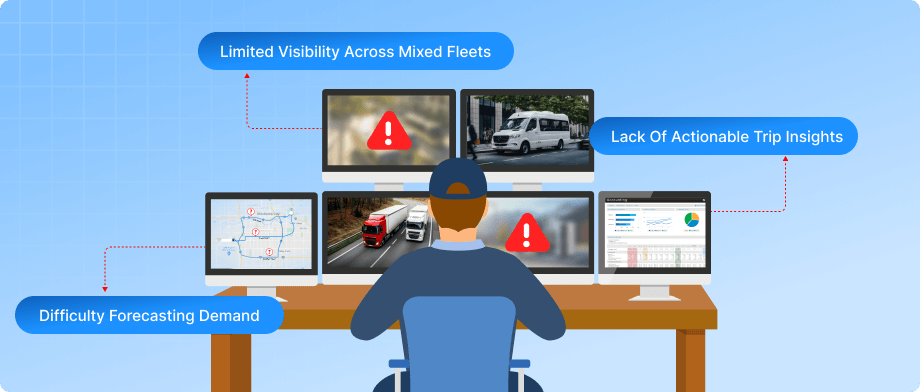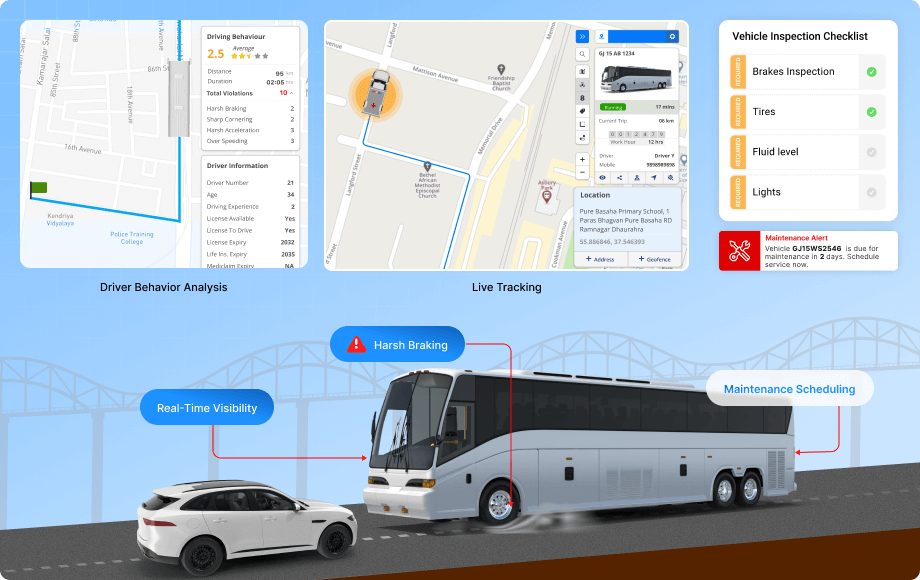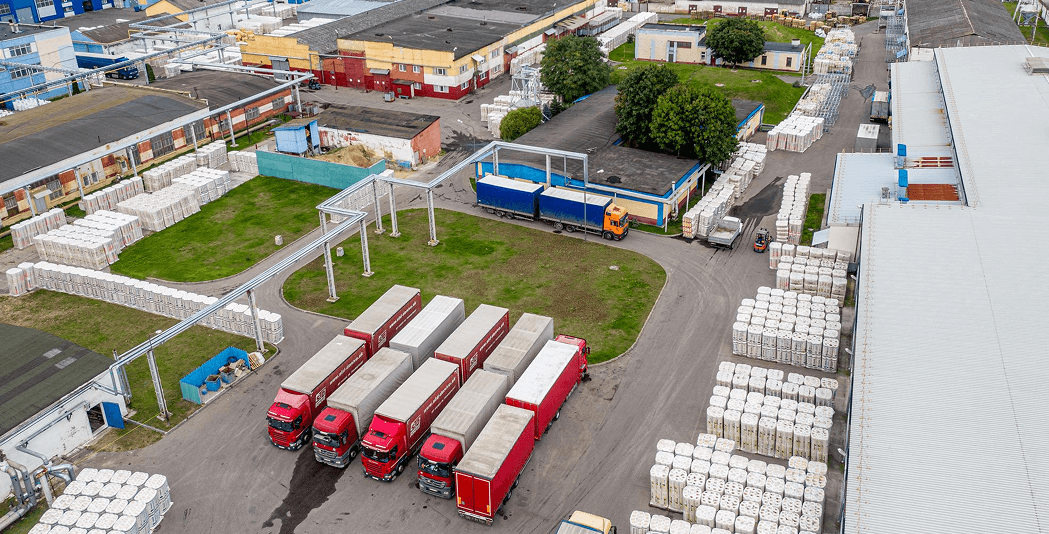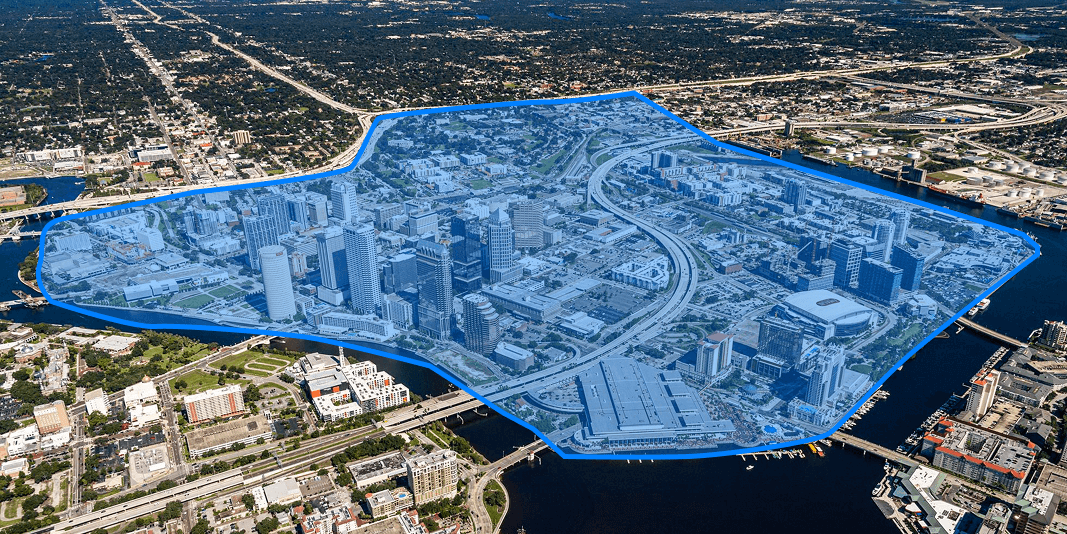Singapore’s smart mobility sector is growing fast with EV fleets, shared mobility, and on-demand shuttle services operating across dense urban routes. To keep these fleets efficient and reliable, operators now depend heavily on fleet analytics. Real-time trip data, utilisation insights, and performance metrics help them optimize routes, improve service quality, and manage daily operations with greater accuracy.
Fleet Analytics for Smart Mobility Operators in Singapore
Introduction
Challenges
- Limited Visibility Across Mixed Fleets:
Operators struggle to monitor EVs, shuttles, shared cars, and rental fleets in a unified system. - Lack of Actionable Trip Insights:
Manual logs make it difficult to analyse trip duration, utilisation, idling patterns, or driver habits. - Inconsistent Service Quality:
Without data, operators cannot detect delays, route inefficiencies, or performance gaps. - Difficulty Forecasting Demand:
Smart mobility providers lack analytics to identify peak usage times, high-demand zones, or route bottlenecks. - Regular compliance:
Operators cannot get accurate data regarding audits, safety standard and compliance.
Solution with Trakzee
- Advanced Analytics Dashboards:
Trakzee provides real-time and historical insights on utilisation, trip performance, idling, and behaviour across mixed mobility fleets. - Unified Vehicle Monitoring:
EVs, shared vehicles, rental cars, and shuttle fleets are tracked in a single interface, simplifying operations. - Trip Reports & Utilization Insights:
Automatically generated reports help operators understand trip trends, vehicle availability, and daily efficiency levels. - Route & Movement History:
Playback tools show exactly how each trip was executed, helping identify delays and route inefficiencies. - Compliance and operational report:
Automated, structured reports support audit requirements and regulatory submissions.
Results Achieved
- Improved Fleet Utilisation:
Analytics helped operators identify idle vehicles and optimise deployment across high-demand zones. - Better Service Consistency:
Insights into delays and performance gaps allowed companies to improve punctuality and reliability. - Reduced Operational Costs:
Data-driven actions minimised unnecessary idling, poor routing, and aggressive driving. - Higher Passenger Satisfaction:
Smoother trips and accurate ETAs improved customer experience across shared and on-demand services. - Faster Decision-Making:
Unified analytics enabled quicker planning, better resource allocation, and stronger overall performance.
Let’s Move Forward, Together
Share your details and we’ll guide you from here.




